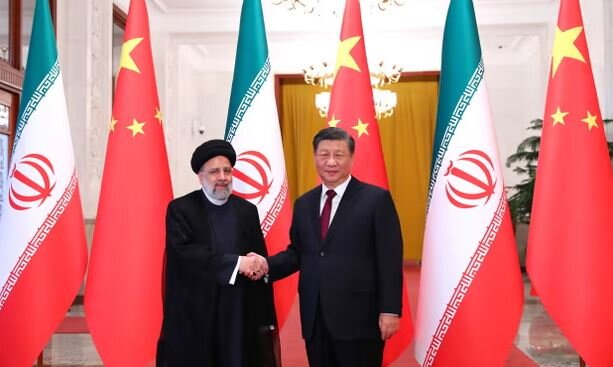Iran ascends in face of U.S. decline in West Asia: report

TEHRAN – In an analysis featured in the Guardian, Simon Tisdall delves into the intricate factors driving a potential power shift in West Asia, casting Iran as a major powerhouse amid the decline of the United States.
As the Ansarullah Resistance forces in Yemen declare their intent to persist with attacks in the Red Sea, Tisdall perceives the United States' resort to military force as indicative of a decline in the country's political leverage, coupled with ineffective diplomatic efforts and a waning authority met with disdain.
These events, as Tisdall articulates, "mark another dismaying milestone on a long trail of western policy failures in the Middle East," revealing a concerning reality for the United States – as it is no longer the dominant power in the Middle East. Tisdall introduces Iran as the emerging powerhouse in the region and begins enumerating the reasons for this paradigm shift.
"The war and its ramifications crystallized the already budding belief in Beijing and Moscow that US global leadership, post-Donald Trump, was in retreat, that the rules-based international order Washington oversees was ripe for subversion and replacement. […] Strategically speaking, it’s clear who is coming out ahead in this crisis," wrote Tisdall, highlighting Iran's growing influence as the country establishes friendly relationships with China, Russia, and even Saudi Arabia.
He notes Iran's efforts to mend relations with Saudi Arabia, enhancing its standing among neighboring countries. He also views Iran’s amicable ties with China and Russia as significantly transformative of Iran's fortunes, “positioning it as a formidable power.”
"Under Chinese sponsorship, Iran has joined the BRICS group and the Shanghai Cooperation Organization," he further commented. Additionally, he pointed out the signing of a 25-year strategic investment and energy pact in 2021 between the two countries. Simultaneously, citing Iran and Russia's evolving dynamics, Tisdall mentioned Iran's acquisition of advanced Sukhoi 35 fighter jets, showcasing the nation's aspiration to enhance its military prowess through powerful political connections.
Furthermore, he observed the increase in Russian exports to Iran: “Moscow has pledged $40bn to develop its natural gas fields.”
Beyond political connections, Tisdall highlighted Iran's successful defiance of years of illegal sanctions, finally steering towards a steady economic condition.
"After 45 years of trying, Iran is finally the big kid on the block. Sanctioning, ostracizing, and threatening Tehran hasn’t worked."
Drawing on insights from analysts Reuel Marc Gerecht and Ray Takeyh, Tisdall portrays today's Iran with a "triumphant mood," evolving into "a formidable rival" for the U.S., Britain, and Israel, which once held sway in West Asia. As Iran's influence rises, the geopolitical landscape undergoes a transformative shift, marking an era where traditional powers grapple with Iran's ascendance.
As Iran emerges as a formidable regional force, Tisdall concludes by advocating for "a fresh diplomatic approach" to prevent the conflict from spilling over in the region.
